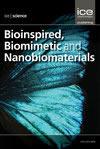Dexamethasone encapsulated PLGA nanoparticles as drug delivery vehicle for the treatment of neuroinflammation
IF 0.6
4区 工程技术
Q4 ENGINEERING, BIOMEDICAL
引用次数: 0
Abstract
Neuroinflammation is a condition that contribute significantly to the pathogenesis and progression of several neurodegenerative disorders. Targeting neuroinflammation is a novel therapeutic approach for the treatment of these disorders. Dexamethasone is a steroidal based anti-inflammatory drug with the potential to treat neuroinflammation. However, in order to maintain the efficacy of the drug, dexamethasone needs to be coupled with an effective drug delivery vehicle to be able to be transported across Central Nervous System. PLGA nanoparticles has been used as drug delivery vehicles for transport of drugs into the central nervous system. The article describes the preparation and encapsulation of dexamethasone loaded PLGA nanoparticles by solvent evaporation method. Statistical Experimental Design approach was performed, wherein Response Surface Methodology was carried out to optimize the parameters associated with synthesis process. Further, kinetic modeling and drug release profile were also determined. The drug encapsulated nanoparticles were validated for its effectiveness in vitro. Toxicity studies revealed the nanodrug to be non-cytotoxic and Griess assay highlighted its ability to lower neuroinflammation. Further, genetic studies revealed the anti-inflammatory properties of the nanodrug was successfully in modulating neuroinflammation.地塞米松包封PLGA纳米颗粒作为给药载体治疗神经炎症
神经炎症是一种对几种神经退行性疾病的发病和进展起重要作用的疾病。靶向神经炎症是治疗这些疾病的一种新的治疗方法。地塞米松是一种基于甾体的抗炎药,具有治疗神经炎症的潜力。然而,为了保持药物的有效性,地塞米松需要与有效的药物递送载体相结合,以便能够通过中枢神经系统运输。PLGA纳米颗粒已被用作药物递送载体,用于将药物运输到中枢神经系统。采用溶剂蒸发法制备了负载地塞米松的聚乳酸纳米颗粒。采用统计实验设计方法,采用响应面法对合成工艺参数进行优化。此外,动力学建模和药物释放谱也被确定。体外验证了药物包封纳米颗粒的有效性。毒性研究显示纳米药物无细胞毒性,Griess试验强调其降低神经炎症的能力。此外,遗传研究表明,纳米药物的抗炎特性成功地调节了神经炎症。
本文章由计算机程序翻译,如有差异,请以英文原文为准。
求助全文
约1分钟内获得全文
求助全文
来源期刊

Bioinspired Biomimetic and Nanobiomaterials
ENGINEERING, BIOMEDICAL-MATERIALS SCIENCE, BIOMATERIALS
CiteScore
2.20
自引率
0.00%
发文量
12
期刊介绍:
Bioinspired, biomimetic and nanobiomaterials are emerging as the most promising area of research within the area of biological materials science and engineering. The technological significance of this area is immense for applications as diverse as tissue engineering and drug delivery biosystems to biomimicked sensors and optical devices.
Bioinspired, Biomimetic and Nanobiomaterials provides a unique scholarly forum for discussion and reporting of structure sensitive functional properties of nature inspired materials.
 求助内容:
求助内容: 应助结果提醒方式:
应助结果提醒方式:


